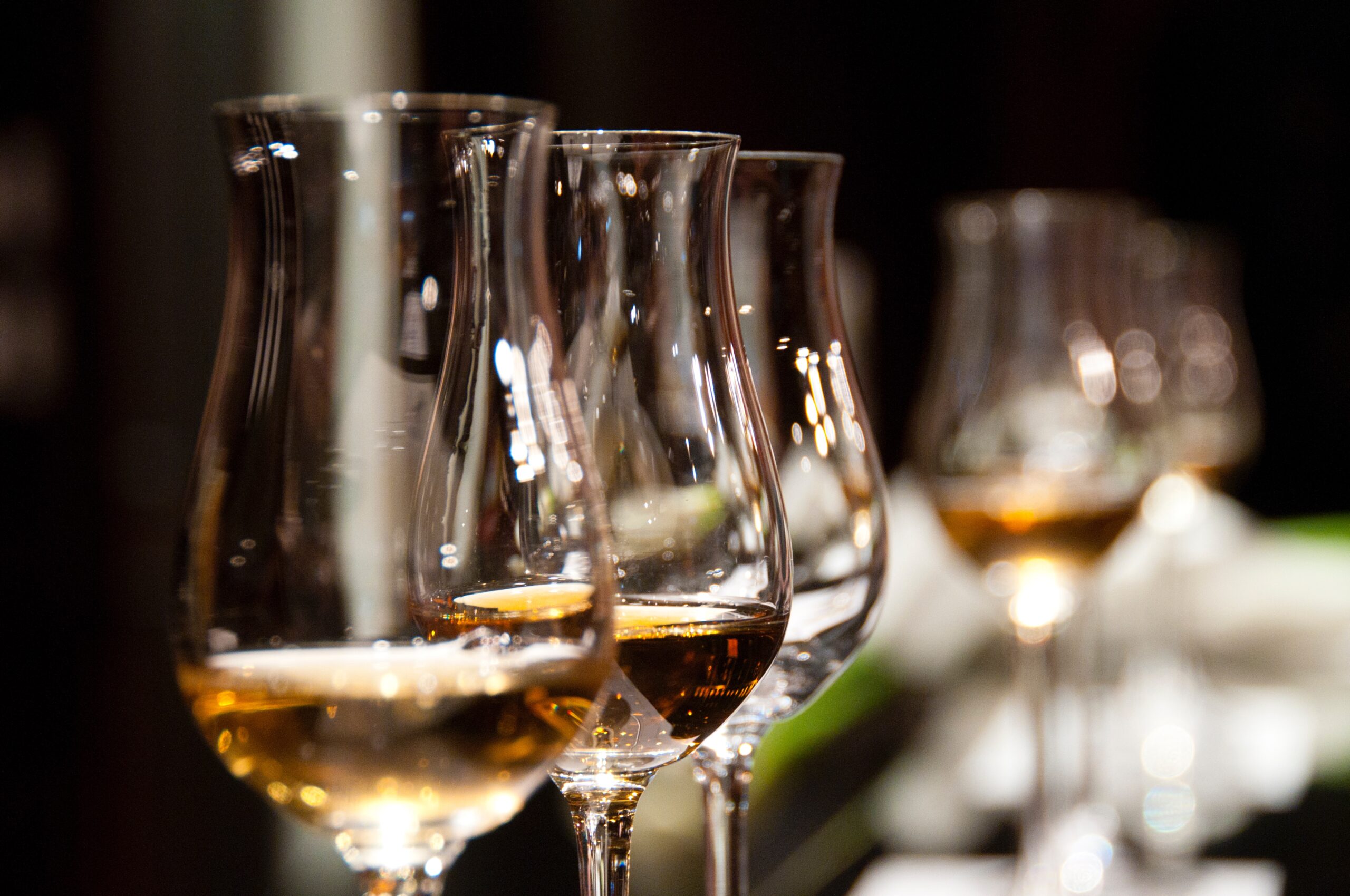Whisky versus wine
People often make the mistake of comparing whisky to wine and fortified wines, such as Port. In the world of wine, age can matter. Several positive changes can occur to a good wine over time once it is in the bottle. This is why people in the know squirrel their wine or Port away for years.
But this does not happen in whisky – the alcohol strength is simply too high and there are no ‘live’ compounds to evolve. All ageing takes place within an oak cask during maturation. Once it hits the bottle any changes are instantly stopped, until that bottle is opened.
Beyond this, there are two things you can be certain about – older whiskies are rare and will be expensive. Why is this? There are several reasons, but neither factor make a whisky better than a younger alternative.
The cask effect
Wherever a whisky is maturing in the world, it is losing some of its physical volume and alcohol strength with each passing day. This evaporation, and the rate of it, is different depending on the climate. Across Scotland for example, most casks lose around 1-2% of their liquid each year to this evaporation or ‘angel’s share’ as it is romantically named.
Therefore, after a few years there will be considerably less in the cask than when it was filled. Looking elsewhere around the world, this figure can rise to 15-20% in extreme maturation climates such as Australia, India, and Taiwan.
Time adds cost
Add to this the time spent waiting to bottle and release an older whisky. You could be waiting several decades – 25, 30, 40 or 50 years and beyond. This involves a lot of time, patience, monitoring, and expertise. Most whisky gets allocated way before this point to fulfil bottlings within a distillery’s core range. If you then bottle a single cask at the natural cask strength, then these factors also add to the rarity, collectability, and price.
In summary, the following will all contribute to making an older whisky rarer and more expensive – age, cask type, alcohol strength, size of batch, and brand. Tick each of these boxes and you are in for a hefty price tag.
Personal preference
Ultimately, only you as the whisky drinker can decide whether an older whisky is better than a younger one. And whether it is worth spending the extra money to obtain it. Many see old and rare whiskies as a status symbol and sign of wealth. Others get frustrated that these products are out of their reach and reserved for an elite few.
Older whiskies tend to have more depth and complexity than younger whiskies, and will also be richer, sweeter, or spicier. Beyond a certain age the sweetness will evolve into more savoury characteristics.
Flavour profile
Also worth considering is that smokiness lessens with age in peated whiskies and becomes more mellow and integrated. The longer a whisky spends in a cask, the more characteristics that it will have naturally pulled from that cask and more subtle the smoky aromas and flavours will be.
So, if you do not like this set of flavour profiles or prefer a whisky lighter, fresher, and more vibrant, or something very peaty, then an older whisky may not be ‘better’ for you. A younger one with your preferred characteristics will suit more. And cost you considerably less.
No right or wrong
It is personal choice and there is no right or wrong. Whether you like something or not is up to you. Some older whiskies are better than their younger expressions and some are not. A whisky may have become too old, woody, and savoury. What can safely be said is that older whiskies are different and more complex than younger whiskies.
The only certainty is that you will pay a heavy price tag for an older whisky. That said, you can experience a great deal of fun finding out if you prefer older whiskies. Order one in a bar and save yourself the price of a full bottle. But most importantly, enjoy your whisky whatever it is and do not get too hung up on its age or price.




